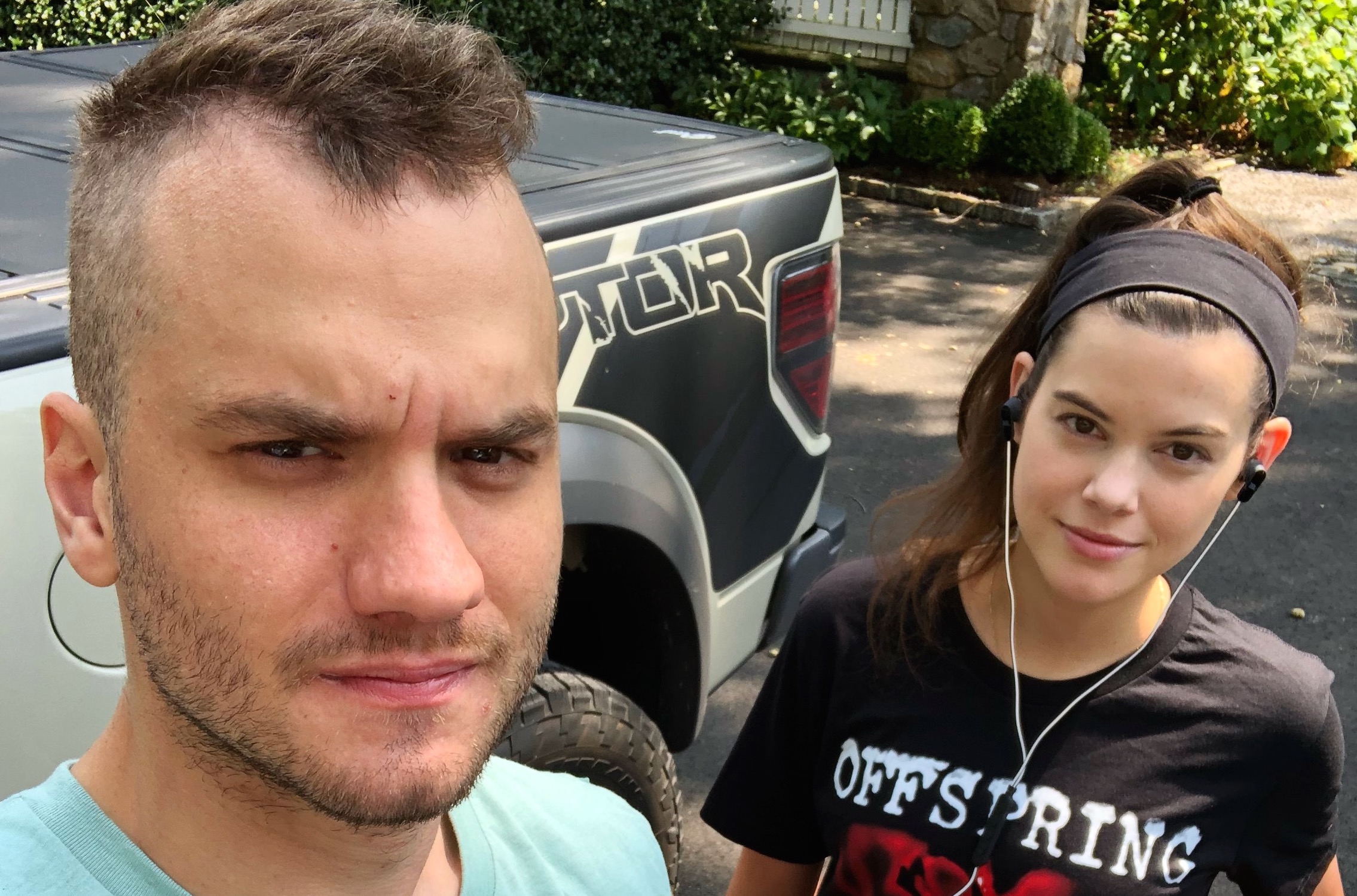Back in December, Darcy, in a blog post, asked the question, “Is it more important to be vulnerable or to be strong?” When confronted with the ultimate challenge of illness and difficult situations, what’s the appropriate way to attack them? For people in our support systems (like Darcy’s role in mine), is it better to be strong or vulnerable for the patient in the hospital bed? She took a look at the question through the lens of her professional career as a child therapist, and also as a CF significant other. “It depends” was the answer a lot of people shared in the comments.
I think the post, at the time, came from knowing Lea was very sick, and some of the conversations we were all having with her.
I’ll never forget the last time I spoke with Lea. She had just taken a turn for the worst and started using a BiPAP, and so I asked her if she looked like an old guy with sleep apnea. She responded with a hilarious selfie straight from the step-down ICU.
Lea was confronted with the worst situation imaginable, and in the moment I decided it was certainly not the time to alter the relationship I shared with her. We provide comic relief for each other, as well as tough shoulders to lean on. Normalcy is important for people in tough moments, and I expect my support system not to change the way the see me regardless of my health at the given moment. Normalcy is invaluable and it keeps at least one part of the patient’s life consistent. That doesn’t mean it’s not okay to break down or remain stoic. All of our relationships are built upon hours, days, months and year of interactions – interactions resulting from countless different experiences. There’s no reason to throw all of that away because someone is sick, and suddenly change your role in someone’s life.
On the patient side, critical health is filled with countless variables and time seems to move at the speed of light. I think most of my friends feel like I am almost too strong in the face of cystic fibrosis and some of the more difficult realities.
I am.
At times I can seem detached, lacking emotion or uninterested. I have compartmentalized so many brutal emotions that I often attack situations with a straight face and give the off the impression that I hardly feel anything. I guess you could say I am numb to different emotions – both positive and negative ones.
I have learned how to stay calm and collected during horrible clinic visits or health crises, and it is exhausting. Sometimes it even translates to intimidation. I have been told I come off as intimidating to people who don’t really know me, and it’s likely because I’m not outwardly expressing how I feel in a given moment.
I think strength in the face of chronic illness is often confused with positivity. There will always be room for positivity in my life, but I don’t think that’s what strength is. Strength is cutting through a tough conversation with the doctor about declining health and searching for answers on the other side. It is absorbing emotion and either compartmentalizing it for later or using it to influence a plan of action – both are acceptable.
Vulnerability also has a role in this, too. When I was very sick after graduating from college, I had to learn to accept that I was sick. I had to admit to myself that my condition was progressing – compartmentalizing that understanding would not have helped. If I locked it away to be dealt with later, I would have continued to progress past the point of no return, only to find myself walking faster and faster towards transplant evaluation. Vulnerability, quite literally, saved my life when I was faced with a seemingly insurmountable challenge. Here I am, though, 6 years after graduation having just blown my best PFT since 2011.
I have used a combination of strength and vulnerability to get myself back to a point where I’m ready to invest in my future and myself – strength to get through some of the hard times, and vulnerability to learn and reset.
Yes, I have reached breaking points. I am not invincible. I have broken down and felt like there was no way forward. I remember one time, specifically, in 2013 when I thought I was at the end of my rope. I thought I was going to die and there was nothing I could do about it. I needed to hit the reset button. Years of compartmentalized emotions just started pouring out and onto my mom in the driveway of our family home. I cried and cried and cried. My mom was the rock I needed and she helped me hit my reset button. She allowed me a moment of vulnerability, and then showed me the door back to strength. It seems like that was another lifetime ago, but that’s what the reset button was for.
To answers Darcy’s question, I think the support system needs to provide normalcy for us, like my mom did in the driveway. Whether that’s strength or vulnerability, it’s for you to decide based on your family dynamic. On the patient side, we have to be able to do both. I’m working on vulnerability.






